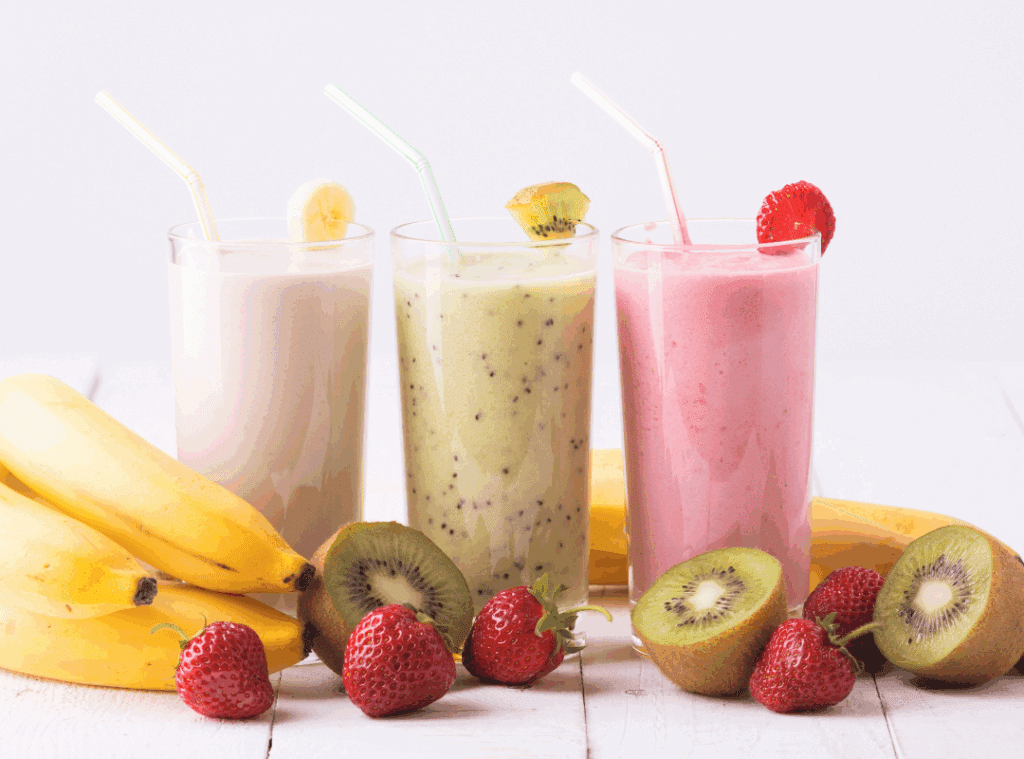As we age, maintaining energy and vitality becomes essential for leading a fulfilling and independent lifestyle. One way seniors can support their daily health is by integrating Whole Foods energy drinks into their diet. Unlike traditional energy drinks loaded with artificial ingredients, these beverages focus on natural, nutrient-dense ingredients that cater specifically to the needs of older adults.
Whether you’re caring for a loved one or seeking wellness for yourself, understanding the role of whole foods drinks can make a meaningful difference. This article explores Whole Foods energy drinks’ senior benefits, ideal ingredients, and how these beverages fit into a balanced lifestyle.
Understanding Whole Foods Energy Drinks
Whole Foods energy drinks differ significantly from conventional commercial energy drinks. While typical energy drinks often contain high levels of caffeine, sugar, and artificial enhancers, whole foods options rely on natural, nutrient-rich ingredients like fruits, vegetables, grains, seeds, and dairy or plant-based proteins.
For seniors, these natural drinks provide an energizing lift without the crash. Smoothies made with berries, leafy greens, and Greek yogurt, or protein shakes with nut butters and chia seeds, are excellent examples. Such options are not only tasty but also easy to digest, making them a great form of instant energy food for old age.
By embracing whole food beverages, seniors can enjoy increased vitality while reducing reliance on stimulants that may negatively impact heart health or sleep. You can learn more about good nutrition and its connection to aging on our blog.
Nutritional Benefits for Seniors
Whole foods drinks aren’t just about energy—they offer complete nutrition to support aging bodies. Here’s how they help:
Essential Nutrient Intake
Older adults often face challenges absorbing nutrients. Whole foods energy drinks senior ingredients like spinach (iron), bananas (potassium), and oats (fiber) can fill nutritional gaps while being easy to consume. These beverages also often contain:
| Nutrient | Benefit |
| Protein | Supports muscle repair and maintenance |
| Calcium | Essential for bone health |
| B-Vitamins | Boost energy and brain function |
| Fiber | Promotes digestion and gut health |
Blending these ingredients into your daily routine supports energy while nurturing the body’s key systems. Explore how nutritional needs evolve in aging in this lifespan guide.
Hydration and Digestion Support
Hydration is especially critical for seniors. Dehydration can impair memory, concentration, and physical performance. Thankfully, many Whole Foods energy drinks double as hydration tools.
Drinks with cucumber, watermelon, coconut water, or kefir provide both fluids and electrolytes. They also contain ingredients like ginger and probiotics, both known to support digestion. A healthy gut means better nutrient absorption and overall comfort.
For more on this topic, read about hydration for cognitive function.
Muscle Repair and Maintenance
Aging naturally brings muscle loss, which can impact mobility and independence. That’s why Best Whole Foods energy drinks seniors should always include quality proteins like whey, pea protein, or Greek yogurt.
By regularly consuming drinks with these ingredients, seniors can maintain muscle tone, reduce injury risk, and enjoy more active days. For more insight on this topic, review this article on nourishing diets and vitality.
Potential Risks and Considerations
Despite their benefits, even Whole Foods’ energy drinks require thoughtful selection.
Nutritional Content Analysis
Here’s what to look for when choosing or making these drinks:
- Natural ingredients only—no synthetic additives
- Balanced macronutrients, especially adequate protein
- Limited or no added sugars
- Moderate caffeine (if any)
- Whole food ingredients instead of powders or synthetic extracts
These criteria ensure the drink supports senior health, not hinders it.
Sugar and Caloric Intake
Even natural drinks can be high in calories or sugars if you’re not careful. A banana-date-almond butter smoothie may be healthy, but portion size matters.
Here’s a quick guide:
| Drink Type | Sugar Content |
| Whole Foods Smoothie | Low to Moderate (Natural Sugars) |
| Kombucha | Low (Fermented sugars) |
| Protein Shakes | Moderate (Sweetened) |
| Diabetic-Friendly Shake | Low (Low Glycemic) |
| Cold-Pressed Juice | Moderate (Watch fruit ratios) |
If you’re watching blood sugar or calories, opt for diabetic-friendly or low-sugar energy drinks. These options ensure you still get energy without the crash or weight gain.
Recommended Options for Seniors
Let’s look at some of the best Whole Foods energy drinks seniors can enjoy:
- Green Smoothies – spinach, apple, banana, chia seeds
- Protein Smoothies – Greek yogurt, almond butter, berries
- Kefir with Berries – gut-friendly and protein-rich
- Oatmeal Shakes – blended oats, milk, banana, cinnamon
- Vegetable Juice Blends – tomato, celery, lemon, herbs
Each option supports digestion, energy, and muscle function. They’re also easy to customize based on individual health needs.

How to Incorporate Energy Drinks Safely
Before making any drastic dietary changes, especially for those with health concerns or medication regimens, safety comes first.
| Drink Alternative | Benefit | Whole Food Sources |
| Smoothies | Nutrient-rich | Fruits, veggies |
| Protein Shakes | Muscle support | Dairy, plant proteins |
| Cold-Pressed Juices | Antioxidants | Raw fruits/veggies |
| Kefir | Gut health | Fermented milk |
| Oat Drinks | Sustained energy | Whole grains |
Start with small servings. Monitor your body’s reactions and always avoid options with added caffeine or excessive sweetness. Drink them in the morning or as a mid-day pick-me-up, not before bed.
Hydration and Overall Health
Drinking fluids isn’t just about water. Whole Foods energy drinks senior benefits include hydration through nutrient-rich ingredients like watermelon, cucumber, and coconut water.
Here are practical hydration tips:
- Keep a reusable water bottle with you
- Choose fruits high in water content (melon, oranges)
- Drink herbal teas without caffeine
- Include low-sugar sports drinks if you’re active
- Eat soups and broths, especially homemade vegetable-based ones
Learn how to maintain hydration while aging with this Cleveland Clinic guide on hydration for seniors.
Consulting Healthcare Professionals
Adding new foods or drinks should always be paired with a conversation with your healthcare provider. A dietitian can help you craft personalized, whole food beverage recipes that align with your health status and goals.
For example, if you’re diabetic, you’ll need lower glycemic options. If you’re on medication that affects digestion, your provider may suggest certain probiotics.
By working with professionals, you can enjoy the benefits of Whole Foods energy drinks’ senior ingredients without any unnecessary risk.
Energize Your Golden Years with Whole Food Choices
Whole foods energy drinks are more than just trendy—they’re a powerful tool in senior health and wellness. Packed with natural nutrients, these beverages offer instant energy food for old age, help preserve muscle, and boost hydration in an easy-to-consume form.
From green smoothies to oat-based shakes, you can fuel your days with drinks designed to nourish your body and support your lifestyle. Remember to consult your doctor and make mindful choices based on your health needs.
If you’re curious about senior living nutrition programs, contact Westmont of La Mesa at 619-369-9700. Or schedule a tour today to learn more about our vibrant and health-focused community.
For further reading, check out Healthline’s review on healthy energy drinks and the NIH’s dietary guidelines for older adults.
Discover the level of care you or your family member requires. What Level of Care Do You Need?
Frequently Asked Questions
What is the best energy boost for seniors?
The best energy boost for seniors often includes a combination of a balanced diet, regular exercise, and proper hydration. Foods rich in complex carbohydrates, lean proteins, and healthy fats can provide lasting energy throughout the day. Incorporating whole foods, energy drinks, and small, frequent meals also helps maintain energy levels. Additionally, maintaining good sleep hygiene and managing stress are key to preventing fatigue in older adults.
What’s the best drink for senior citizens?
The best drink for senior citizens is water, as it helps with digestion, circulation, and temperature regulation. In addition to water, herbal teas, low-sugar fruit juices, and whole foods energy drinks designed for seniors can offer both hydration and nutrients. Drinks with added vitamins and electrolytes can also support overall wellness. It’s important to avoid beverages high in sugar or caffeine, which may cause dehydration or interfere with medications.
What supplements are good for energy for the elderly?
Common supplements that support energy in the elderly include B vitamins (especially B12), iron, magnesium, and CoQ10. These nutrients help the body produce energy and can counteract fatigue caused by deficiencies. Before starting any supplement, it’s essential to consult with a healthcare provider to ensure it’s safe and appropriate. A well-rounded diet often reduces the need for heavy supplementation.
Can older people drink energy drinks?
Older adults can drink energy drinks, but caution is strongly advised. Many commercial energy drinks contain high levels of caffeine and sugar, which can raise blood pressure, affect heart health, and interfere with medications. A safer alternative is whole foods-based energy drinks explicitly formulated for seniors. These options typically contain natural ingredients and provide a more balanced and gentle energy boost.








